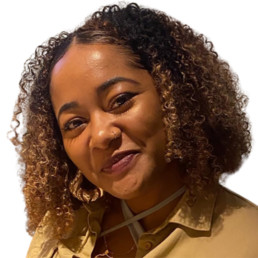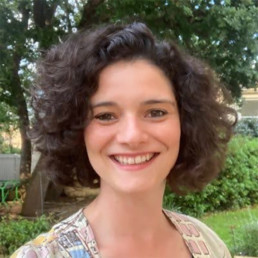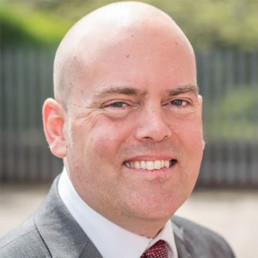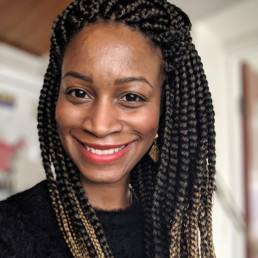Talking Race and Racism with Children - when do we start?

Written by Omena Osivwemu
Former Primary Teacher, Humanities Lead, Researcher. Author of 'Decolonising the Curriculum: A Comparative Case-Study of Black Learner and Educator Perspectives and Experience in London and Johannesburg' in The BERA Guide to Decolonising the Curriculum.
This question has played on my mind for a while; at a conference of educators reckoning with race, a Black senior leader who is also a parent asked “when is the right time to talk to my children about race?” This stuck with me and the academic on the panel looked to me, as an experienced Primary School teacher to respond.
Given my lived experience growing up Black in Northern England, training and teaching across the North and the Midlands, the answer seemed obvious to me.
In short- right away! As soon as children are absorbing language, learning values and copying behaviours.
As soon as we teach toddlers what is a boy and what is a girl, that is the social construction of gender- even if you opt for a more gender-neutral or fluid approach- that is still teaching them difference. When we teach children to share; be kind; tell the truth etc., all values we deem to be ‘right’, we should also be teaching them that sometimes not everyone will be kind, share or tell the truth. At times this can be due to our differences. But difference is a wonderful, necessary part of life!
Of course, discussions should be age-appropriate in language children understand and use. ‘Sulwe’ by Lupito Nyong’o is a beautiful book, aimed at young children and explores themes of ‘race’ and colourism. Now, there is a wonderful array of diverse books available for all ages! As children get older, we can then build on their racial literacy, empowering them to make some sense of the social construction that is ‘race’. For adults, I would recommend ‘How to raise an anti-racist’ by Ibram X. Kendi as a great place to start.
As soon as we read traditional tales to children, let them watch YouTube, TV or films, we are passing on messages about society, how people interact and what is deemed ‘right’ and ‘wrong’. When children can describe something as red, green, blue, black and white; they can and will use this language to describe differences between people. It may not be ‘accurate’ to the adult lens, for instance as a young child in a Black, mixed family, I would draw my father’s dark brown skin as purple and my mother’s very fair brown skin as pink.
One of my earliest memories as a 4 year old (contextualised by my mother’s memory) at a mostly White Nursery, was feeling different. Too brown, with hair that was too dark and curly, and eyes that were too dark, compared to the teachers, other children and most importantly the blonde, blue-eyed dolls which I adored! Then, when the teachers with good intentions, changed the play to ‘Curlilocks’ so that I could play the character Goldilocks, I knew I wasn’t ‘right’- I didn’t fit. If Black and brown children aren’t too young to experience or witness racialisation or racism, nobody else is too young to learn about ‘race’ and racism.
Later on during undergrad’, volunteering in local primary schools in Northern Lancashire, as soon as I walked into classrooms, children as young as 4 would stare wide-eyed and mutter under their breath “she’s Black!”. Throughout my teaching career across England and Spain, most times I was the only Black teacher children had seen. The responses have varied from positive, such as expressing their love for my curly hair, inquisitive questions and collaborative cultural exchange. To the negative, for example young children avoiding touching my skin when I gave them something, or 6 year olds ignoring me as though they didn’t understand my English, because as one boy put it, I was “from Africa”.
I recognise that in Black and brown majority spaces like London, experiences such as mine may be less common. However, if parents, the media, film, books etc. are socialising children as young as 3 and 4 to understand brown skin, or Blackness, or religious dress, or simply human difference such as accents, as ‘bad’ or negative, then we too should be equipping our children with the understanding that such a belief system (white supremacy) exists and continues to prevail- albeit gently. We should be uplifting Global Majority children to feel proud of their cultural and ethnic backgrounds, histories and identities. We should help children to contextualise what they are seeing and embolden them to have high self-esteem and confidence when facing barriers/ discrimination.
In the same way that we acknowledge teaching children ‘stranger danger’, online safety, how to respond to bullying, physical and mental wellbeing, and healthy relationships in order to protect them from harm and prepare them to safeguard themselves; we should also be empowering all children with the language and understanding to know when discrimination and racism are happening (unfairness / unkindness in children’s terms). In the same way that far-right rioters and sympathisers have taught their children, as we saw this summer, to attack, abuse and harass Black, brown, migrant, Muslim peoples; we too should be teaching our children from early why it is happening and how they can respond.
Cultural Intelligence in the Classroom

Written by Cecilia Harvey
A quadrilingual Social Anthropologist whose passion for the richness of diversity and the psychology of the human race, Cecilia focuses her Equity, Diversity & Inclusion work on connecting people through difference. As a subject matter expert, Cecilia has driven and coordinated strategic initiatives centred around identity, gender, LGBTQ+, ethnicity and disability, working with multiple stakeholders. Accomplished in designing training programmes such as unconscious bias awareness, microaggressions and inclusive language, Cecilia’s deep understanding of culture, psychology and behaviours has allowed her to become an Accredited Facilitator in Cultural Intelligence (CQ ®).
In 2024, cultural intelligence (CQ) is not merely a desirable trait but a critical competency for thriving in a globalised, diverse, and interconnected world. In sectors ranging from business and education to diplomacy and personal interactions, CQ equips individuals and organisations with the tools necessary for success and positive contributions to global society. As migration continues to shape societies, CQ plays a pivotal role in fostering cohesive communities.
The benefits of CQ extend beyond the business realm. Educators, in particular, can greatly benefit from high levels of cultural intelligence. Educational institutions that host international students or conduct exchange programs reap significant advantages from faculty and staff with high CQ. It enhances the educational experience by creating a more inclusive and understanding academic environment. Students with high CQ are better prepared for global citizenship, possessing the skills to thrive in diverse settings.
By fostering CQ, educators can better support their students, leading to improved academic outcomes and a more inclusive school community. Just as businesses benefit from CQ, so too do educational institutions, which create environments where everyone can succeed and thrive. Investing in cultural intelligence is not merely a strategic business move; it is a transformative approach that can revolutionise education, leading to a more inclusive and effective learning and working environment.
Here’s how CQ can help educators navigate effectively in increasingly diverse classrooms:
- Enhanced Communication: Educators with high CQ can better understand and interpret the cultural contexts of their students, leading to more effective communication. This understanding helps address the unique needs of students from diverse backgrounds.
- Inclusive Curriculum Design: CQ equips educators with the knowledge to design curricula that are inclusive and reflective of diverse cultural perspectives. This enriches the learning experience and ensures all students feel represented and valued.
- Improved Student Engagement: By recognizing and valuing cultural diversity, educators can foster a sense of belonging among students, leading to higher levels of engagement and participation in the classroom.
- Conflict Resolution: High CQ allows educators to navigate and mediate conflicts that may arise from cultural misunderstandings. This skill is crucial for maintaining a harmonious and productive learning environment.
- Professional Development: For educators, CQ is an essential component of professional growth. It encourages continuous learning and adaptation, keeping educators at the forefront of best practices in multicultural education.
- Cultural Sensitivity in Assessment: Understanding cultural differences in learning and assessment styles helps educators develop fairer and more effective evaluation methods. This ensures that assessments are truly reflective of student capabilities, not biased by cultural misunderstandings.
- Personal Development and Global Awareness: On an individual level, CQ fosters personal growth and global awareness. It encourages empathy, open-mindedness, and adaptability, qualities essential for both professional success and personal enrichment in an increasingly interconnected world.
Diary of a Dyslexic Teacher

Written by Liz Boyer
Liz Boyer has dedicated 21 years to education, she specialises in EYFS and KS1. Liz has taught across phases in both the Independent and State sectors, most recently in inner-city schools that are wonderfully diverse in nature. Liz has held various school leadership roles and has devotedly mentored ITT/E students for 15 years. In 2021, she became a SCITT Tutor, and currently serves as Primary Lead for Bluecoat SCITT Alliance BSA. Starting in September 2024, Liz will begin her role as a Senior Lecturer at the University of Derby UoD, continuing her commitment to fostering excellence in education and developing the next generation of teachers. Liz is also dyslexic but doesn’t wish that to define her.
In 2021, I wrote a diary during a 10-day COVID isolation. Fast forward to today I am a Primary SCITT Lead at Bluecoat SCITT Alliance BSA within the Archway Learning Trust ALT. Here, I have the honour of collaborating with an array of exceptional trainee teachers, each with their own unique experiences. Some of these trainees have encountered the challenges associated with neurodiversity, and it is a privilege to support them as we navigate the dynamic landscape of teaching together. I firmly believe that every individual has valuable contributions to make, and I am committed to working with both trainees and educational institutions to ensure that everyone’s strengths are recognised and celebrated. Some schools actively champion colleagues of all backgrounds, while others are striving to achieve this inclusive environment. My primary support in this endeavour is Diverse Educators DE, an organisation that not only shapes policy but also guides schools as we navigate the era of inclusivity.
2021 Highlights
Day 1: Introduction
I am Liz Boyer, an educator with 18 years’ experience, whilst I have had many senior school roles I identify first and foremost as a teacher. What sets me apart from some others (although 20% of the population are with me) is my dyslexia, a facet of my professional life I typically do not emphasise however, I am not saying it should be hidden. Today, I aim to share insights, coping strategies, and reassurance for teachers—whether dyslexic or not—drawing from my own journey.
Day 2: Lists
Make a plan with tiny steps to kick start tasks, applicable beyond teaching. For instance, when tackling a long-term plan, start by just gathering necessary materials. Set a specific day and time for each step, adhering to it diligently. Embrace list-making to maintain momentum—I find ticking tasks off deeply rewarding.
- Write day 2 diary entry for blog.
Day 3: Mathematics
Reflecting on my own education in maths, I faced significant anxiety around numbers, which mastery, a concept absent in my schooling, would have alleviated. My breakthrough came shortly before my PGCE during a refresher course, highlighting missed fundamental concepts. Witnessing mastery in Early Years, I see its power in building confidence and comprehension, ensuring all students succeed.
Day 4: Level 7
For reluctant readers and writers aiming for academic credibility at Level 7, the demands on trainees, ECTs, and their mentors are undeniably higher than before. While high expectations for teachers are justified, they should come with increased trust and respect for the sector. Amidst such pressure, retaining and nurturing good teachers becomes crucial. Here are practical pointers for those feeling overwhelmed:
- Start with subjects that genuinely interest you, for me EYFS or ITT/E.
- Cultivate a network of trusted friends and colleagues who can help read and rephrase materials.
- Utilise social media groups for resources and support.
- Incorporate audiobooks or podcasts into your routine for multitasking.
- Engage in webinars or teaching hubs for ongoing, affordable support.
Day 5: Phonics
Balancing play, phonics, and literacy is challenging but crucial. Reflecting on my education and my son’s journey, I recognise the importance of time in learning to read and write. While the new EYFS framework is positive, there is still a lack of trust in children’s need for exploration and play. More emphasis on Phase 1 and language development in Reception is essential.
Day 6: Asking for Help
Accepting support is vital, even though I found it challenging in the past. My mum checked my work as a teenager, and although I found it embarrassing then, I now appreciate support from her or other trusted checkers.
Day 7: Making Mistakes
Mistakes are part of learning, but professionalism demands accuracy in communication. You also need to set a good example to children and I think that written and spoken English needs to be correct. Daily practice and support are essential for improvement, use flashcards and revision techniques just as you would with children. Senior Leaders need to play to people’s strengths and celebrate the creativity, ability to communicate and energy to name a few positive attributes that often come from pupils and teachers with dyslexia.
Day 8: Health and Resilience
Resilience is vital for teachers. Learning from setbacks and taking care of mental and physical health are crucial. After setbacks like nerves in interviews, it is important to learn and grow.
Day 9: Supply Teaching
Supply teaching offers valuable learning opportunities and keeps educators sharp. It allows observation of various school cultures and improves subject knowledge through diverse experiences.
Day 10: Conclusion
I hope you have found my experiences useful and that I have emphasised that having dyslexia or other learning needs need not be a barrier to teaching. Full blog available on request.
Understanding Staff Wellbeing in Academies: A Mid-Year Review

Written by Iona Jackson
Iona leads on turning Edurio’s national datasets into useful and impactful insights for trust and school leaders. Iona has worked on national reports focused on topics such as equality, diversity and inclusion, staff retention and pupil experience and wellbeing. She works closely with education leaders and industry experts to understand what the current position means for the sector, and where to go from here.
In the education sector, the wellbeing of staff is a critical issue that impacts not only the individuals involved but also the quality of education provided to pupils. Recent data from the Edurio 2023/2024 mid-year report of Staff Wellbeing in English Academies sheds light on the diverse experiences of educators and other school staff, highlighting significant variations in wellbeing across different roles and protected characteristics.
Overall Wellbeing Insights
The report reveals that less than 40% of staff feel very or quite well, with over a quarter reporting poor wellbeing. Additionally, while around a third of staff report sleeping well, almost half feel stressed and overworked. Despite these challenges, the majority of staff often feel excited about their work, showcasing a dedication to their roles despite the pressures they face.
Role-Based Wellbeing Differences
Wellbeing varies significantly by role within the school environment. Teachers, for example, report the lowest levels of wellbeing across almost all measures, including sleep quality and stress levels. Leadership roles, while also experiencing high levels of stress and workload, report better overall wellbeing compared to other roles.
Protected Characteristics and Wellbeing
Examining wellbeing through the lens of protected characteristics reveals notable disparities. Age, gender, sexual orientation, ethnicity, disability, and parenthood all influence wellbeing in distinct ways.
Age: Younger staff, particularly those aged 25-34, report the lowest levels of wellbeing, highest stress, and poorest sleep quality. In contrast, older staff, particularly those aged 65-74, report better overall wellbeing and less stress.
Gender: Male respondents generally report higher wellbeing compared to female respondents. However, those identifying with another gender identity, although a small group, report significantly worse wellbeing across all measures.
Sexual Orientation: Heterosexual staff report slightly more positive wellbeing outcomes than their LGB+ counterparts. Stress levels are notably higher among LGB+ staff, reflecting the unique challenges they face in balancing personal and professional identities in often unsupportive environments. As contributors Jo Brassington and Adam Brett from Pride and Progress noted, “The stress that LGBT+ teachers experience speaks to the need for LGBT+ teachers, and teachers from minority backgrounds, to receive mandatory training and support as part of ITE programmes and throughout their careers.”
Ethnicity: The relationship between ethnicity and wellbeing is complex, with no clear trend emerging. However, it is noteworthy that White British staff are the least likely to feel excited by their work. The commentary from Black Men Teach highlights, “While there are variations across ethnic groups, the disparities are not always stark and consistent. This aligns with broader discussions on intersectionality, recognising that individuals may experience unique challenges based on the intersection of various identities, such as race, gender, and socio-economic status.”
Disability: Disabled staff report significantly lower wellbeing across all measures, with issues like poor sleep quality and high stress levels being particularly pronounced. Catrina Lowri from Neuroteachers emphasises that creating a sense of belonging and celebrating disability can have a substantial positive impact on staff wellbeing. “Where schools are trying to improve situations for disabled staff the most successful organisations are those which create a sense of belonging, not only for disabled staff but for those with protected characteristics as a whole.”
Parenthood: Staff who are parents generally report higher overall wellbeing, lower stress, and a greater sense of excitement about their work compared to non-parents. However, they do report slightly lower sleep quality. The reflections from Maternity Teacher Paternity Teacher underscore the importance of understanding the unique experiences of parent-teachers to better support their wellbeing, “More information is needed to understand the experiences of parent-teachers. The age of their children, for example, is likely to play a part in their sense of wellbeing, particularly the impact of their sleep on their stress levels, resilience and ability to cope with their workloads.”
Recommendations for Improving Wellbeing
The report concludes with several recommendations aimed at enhancing staff wellbeing, including taking more intersectional approaches to understand wellbeing disparities more comprehensively, providing cultural competency training, establishing mentorship and support networks for staff from minority backgrounds, advocating for more equitable policies and wellness programs tailored to the unique needs of diverse staff, and fostering partnerships with community organisations to strengthen support for staff.
Hannah Wilson, Director of Diverse Educators, contributes to the conclusion of the report, inviting readers to reflect on their practices:
- Do we know how many trans and non-binary staff that we have in our organisation? How is their MHWB and what can we do to support this group who are very vulnerable in the current climate?
- Do we know how many LGBT+ staff that we have in our organisation? Is there a difference in the MHWB of a gay man to a lesbian woman, and how does this differ if they are also a person of colour or a person of faith?
- Do we know how many disabled staff/ staff with a disability that we have in our organisation? How are different staff disabilities and access/ inclusion needs supported in an intentional and a proactive way?
By recognising and addressing the diverse needs of staff, schools can create a more inclusive and supportive environment that promotes the wellbeing of all educators, ultimately benefiting the entire educational community.
For more information:
The 2024 Staff Wellbeing in Academies report reveals important contrasts in the wellbeing of different groups of staff working in England’s schools and features expert commentary from Black Men Teach, Diverse Educators, Maternity Teacher Paternity Teacher, Neuroteachers, Pride and Progress and Sufian Sadiq.
Edurio is England’s leading provider of staff, pupil, and parent feedback surveys for schools and multi-academy trusts. So far, our school surveys have supported over 750,000 pupils, parents and school staff. Edurio’s platform and nationwide dataset allow trust and school leaders to benchmark their performance against national averages on topics like staff wellbeing, retention and EDI, parental engagement, pupil wellbeing and others. By measuring the often difficult-to-track elements of education quality, Edurio can help school leaders make informed decisions, develop engaging relationships with staff and communicate their values to their community.
What Could Sustainable Teacher Recruitment Campaigns Look Like?

Written by Emma Sheppard
Emma founded The MTPT Project, the UK's charity for parent teachers, in 2016 when on maternity leave with her first child. She has 12 years experience as an English teacher, Lead Practitioner and ITT Lead, and now runs The MTPT Project full time.
When I trained to teach in 2010, I was drawn into the profession by the motivation to Make a Difference. I wanted to be a Changemaker; to have Social Impact; to Do Good. And I was willing to work all hours and make sacrifices to – essentially – satisfy my guilty white saviour complex.
Maybe that’s a little cutting: after all, a sense of moral purpose and the pursuit of meaningful work are values to live and stand by.
But, two years later, after missing holidays with my family, developing chronic migraines and unable to identify any other hobbies beyond the bassoon that I had once enjoyed (but no longer had time to play), I burnt out and quit UK education for a stint in an international school, and the luxury of an expat lifestyle.
Vivid memories of two recruitment videos remain with me from this time. In the first, a young man rides to school in the dark, and is the first in the building to switch on the lights. He excels at his job, cares for his students. At no point do we see him doing anything other than living and breathing teaching.
In the second, a young man wakes up, arrives at school, and we jump between his previous office job (dull) and his current teaching role (fulfilling). At dinner time, he talks about how great teaching is and then gets into bed, and the cycle repeats itself. At no point is there anything in his life other than teaching (and the back of his girlfriend’s head).
There is nothing incorrect about either advert: teaching is a brilliant and life-affirming career. And – let’s admit it – as teachers, we do love to regale our friends and family members with hilarious school anecdotes at every opportunity. The kids are the best bit. Indeed, both adverts are powerful appeals to potential recruits who want to do nothing but teach.
But for how long do we want to – or are we capable of – martyring our whole lives to our profession?
Surely, if we want to see improved teacher retention, we need recruitment campaigns that sell teaching as a career choice that allows for a life beyond the classroom?
This is where a recent video from Reach Teacher Training has got things so right. Like the videos previously mentioned, this advert follows two teachers from the start to the end of their working day, but the marketing team behind this piece have made some deliberate directorial decisions about the culture that new recruits can expect at Reach.
In the first iteration of the video – a 29 second clip – Reach dedicate 6 seconds to images of one of the teachers hugging her own child and waving goodbye at the door before she drives away. That is 21% of expensive marketing time given over to stating that teaching is a family-friendly career choice – at least at a Reach Academy.
In the second version of the video, Reach set aside a glorious 23 seconds (of 55 seconds in total, so 42% of the entire clip) to the life-friendly nature of their school. The first teacher joins her running club to run home with her pals in the sunshine. Meanwhile, we zoom in to the second teacher closing her laptop and checking her watch as she finishes her day. Her watch says 15:54 and, presumably, she’s on her way to school pick-up.
In both videos, we see the teachers enjoying animated conversations with their students. We see them delivering excellent lessons. We see them Making a Difference.
Indeed, the text that accompanies the social media posts sharing these videos reads: Join our community; Change lives; Train to teach.
But unlike those adverts that drew me into a military lifestyle of teaching that – as a 22-year-old with no real prior experience of the workplace – I could not sustain, these adverts state very clearly that the dream is possible. Teaching is a life-friendly career, state Reach, and one that you can enjoy for years to come around all the other beautiful moments that life will offer you.
Bravo, Reach Teacher Training, and the team behind your recent recruitment video.
Pride Month 2024 - Responding to homophobic language: guidance for schools using Oracy and No Outsiders

Written by Andrew Moffat
Andrew Moffat has been teaching for 25 years and is currently PD Lead at Excelsior MAT. He is the author of “No Outsiders in our school: Teaching the Equality Act in Primary Schools” and “No Outsiders: everyone different, everyone welcome”. In 2017 Andrew was awarded a MBE for services to equality and diversity in education and in 2019 he was listed as a top ten finalist in the Varkey Foundation Global Teacher Prize.
Ensuring equality for all cannot be achieved if any group of people feel they are unseen, unwelcome or feel targeted because of the person they are. As teachers, we strive to ensure that everyone feels seen, everyone feels welcome, and no one feels they have to hide their true selves, or parts of their identity.
In preparing children for life in modern Britain, we need to be clear and consistent in our efforts to make schools a safe place where children understand there are different ideas in society and prejudice may exist in the outside world, but prejudice and discrimination do not exist here, because in our school, there are “No Outsiders” and everyone is welcome.
Children are allowed to hold different views. I am a big champion of oracy as it encourages children to see both sides of a debate and understand it is possible to hold two views at one time. However, while different views are embraced, the othering of a group of people is not allowed. A child can disagree with a point of view and still show respect; this is the golden thread of a no outsiders ethos.
If a child chooses to use homophobic language, this must be tackled immediately. Children must understand there is no tolerance of prejudice at our school. It is the job of any adult to respond to homophobic language, as this is a safeguarding issue (KCSIE, 2023, “Children who are LGBT” page 51),
A quick response is; “Excuse me?” or, “What do you mean by that?” followed by, “And what do we say at our school?” to which the expected reply is “There are no outsiders”. Reiterate, “That’s right, there are no outsiders here, so you need to think about the language you are using. How are you going to put that right?”
All homophobic incidents should be recorded, and parents informed.
If homophobia arises in a debate where no individual is being targeted but there are attitudes forthcoming that need to be addressed, make sure they don’t go unchecked. An oracy framework enables us to challenge such attitudes effectively by asking the class to respond; “Would anyone like to respond to that?”. If the comment is offensive, for example if a child says, “gay people are wrong” it’s important that the adult responds immediately along the lines of;
“Can we think about the language we are using here… those ideas may exist in the outside world, but we need to be really careful about the words we use here. To say something is ‘wrong’ is different to saying, you ‘don’t agree’ with it. Do you want to re-phrase so that you are not othering anyone or being offensive?”
“What does the law say about this?” (The Equality Act, British law says it’s ok to be LGBT)
“What do we say at our school about different people?” (We say there are no outsiders, and everyone is welcome here.)
It’s vitally important the teacher addresses the attitudes while not giving their own opinion so we don’t get in to an argument or lead the children down any particular path. What we need to do instead is remind children it is ok to hold different views (“and that’s what makes this debate so interesting”) and we can still show respect and non-judgement. It’s ok to disagree with one another, the important thing is that everyone still feels they have a place here, including the child who is being offensive. It is the child’s views that are not welcome; the child is still welcome.
If a child brings their faith into the discussion; “My religion says it’s wrong”, respond in this way:
“You’re right, there are different views about this in different religions. And that’s the best thing about living in the UK- we have different views and beliefs, freedom of speech and democracy, and we have the Equality Act which protects religion and belief, so people are allowed to hold those views under British law. Who else is protected under the Equality Act? (disability, age, race, pregnancy and maternity, marriage and civil partnership, sex, LGBT) hmmm that’s interesting isn’t it – on the one hand you have religion and belief and on the other you have LGBT … both protected, both allowed… so I suppose we have to find a way to respect both views. We can co -exist without saying the other is wrong….”
And then open out the conversation, move it along using the oracy technique; “Who wants to build on that?”
Keep coming back to “That’s why we say there are no outsiders… we can have different opinions, and we can still respect each other. No one is pushed out because of their religion, their race, or because of their sexual orientation.”
I recognise that these conversations are not easy but they are important and we need to be having them with our children. My advice is to practice responses with each other as a staff team.
Here are some useful assembly links from www.no-outsiders.com:
https://no-outsiders-assembly.blogspot.com/2024/05/pride-2024.html
Assembly pictures : Football shirt (no-outsiders-assembly.blogspot.com)
Assembly pictures : football (no-outsiders-assembly.blogspot.com)
Assembly pictures : Bathroom (no-outsiders-assembly.blogspot.com)
Assembly pictures : Beano (no-outsiders-assembly.blogspot.com)
Assembly pictures : LGBT history month (no-outsiders-assembly.blogspot.com)
Assembly pictures : What is homophobia? (no-outsiders-assembly.blogspot.com)
Assembly pictures : Curly hair (no-outsiders-assembly.blogspot.com)
https://no-outsiders-assembly.blogspot.com/2024/06/veteran.html
Advancing Black history education in the UK

Written by Katie D'Souza
Katie D'Souza is a recent MA Education graduate, whose dissertation titled "Understanding the impact of 'our island story': exploring feelings of identity and belonging for Black British students" is currently under review for publication in the Curriculum Journal. Katie has since worked for a small business called The Educate Group, supports university staff to diversify their curricula and lead more inclusively, and now works at the Office of the Children's Commissioner, helping to ensure that the government listens to the voices of the children and young people living in this country.
Did you know that you can ask your MP to host a roundtable for you in parliament? The Black Curriculum (TBC) founder, Lavinya Stennett, certainly knew this, and last week took the opportunity to bring together key players in the Black history sphere for a critical discussion of Black history education in the UK, hosted by Bell Ribeiro-Addy MP.
TBC’s mission is to work with key stakeholders to embed Black history into the national curriculum. This roundtable sought to find practical and productive actions for ways to achieve this, and further cemented the determination for Black history to be meaningfully incorporated into the national curriculum, all year round.
With contributions from Professor Deirdre Osborne, expert in feminism, race and poetics, Michelle Codrington Rogers, citizenship teacher and NASUWT President, and award-winning history teacher and author Shalina Patel, amongst others, participants left this roundtable energised to arm the next generation of students (and ultimately leaders) with the comprehensive knowledge of history they need to navigate our increasingly globalised world.
A survey conducted by Bloomsbury in 2023 found that more than half (53%) of those surveyed could not name a Black British historical figure, and that only 7% could name more than four. The same survey suggests that less than 1 in 10 Brits believe that Black people have resided in England for more than 1000 years, assumptions erring towards 200 years, when in fact the answer in closer to 2000. Is this really the state of our history education system at the moment?
More can, and should, be done. Teaching Black history does not just build essential knowledge about structural and institutional racism, and Black brilliance, joy, and success. It also helps to create a sense of belonging for students with diverse heritage in UK classrooms, which may even serve to improve attainment and academic progress.
However, as it stands, the only mandatory (statutory) topic on the Key Stage 3 history curriculum is the Holocaust. Whilst the Department for Education has defended this set up as giving schools and teachers the freedom and flexibility to include Black history, in practice, the non-statutory nature translates as schools having little incentive to change their existing approach to history.
Shalina’s powerful account of her experience as a history teacher of 15 years spoke to the importance of the supportive leadership team in her school giving her both the time and resources to construct a department that is committed to building an inclusive history curriculum.
Unfortunately, this is not the case for everyone. When there is resistance to change at management and/or senior leadership team level, it can make it really difficult for teachers to do this important work alone.
Bell’s remarks further emphasised the role that teacher confidence and resources play in delivering a comprehensive Black history education. She reasoned that all teachers must be equipped to do justice to Black history in the classroom, so that the responsibility does not fall solely on teachers of colour. TBC’s resources are a great way to begin to do this, as Robert Primus, a secondary school history teacher, advocated, but this must be paired with some more concrete changes to the way history is taught in our schools.
Therefore, in the face of a general election in July, we urge the next government to consider the following asks from TBC and the other participants at this roundtable:
1 Introduce mandatory racial literacy training
The consensus at the roundtable was that we know teaching Black history is essential but that there are real, practical barriers to achieving this widely across the UK. TBC together with sisters Naomi and Natalie Evans who founded Everyday Racism ask that the next government introduces mandatory racial literacy training for school staff and leaders, under the rationale that racial literacy acts as a form of safeguarding for students from diverse backgrounds. Every adult interacting with children and young people must understand the intersectionality of identity in the UK and how the way that narratives and histories are told in the classroom deeply affects the sense of self and belonging of those listening. It’s imperative that teachers are given the time, headspace and resources to become more racially literate, and we believe making this training statutory is the way to make this happen.
2 Make Black history a statutory part of the curriculum
Recent RSHE guidance published by the Department for Education has proven that if they want to, the government is willing to prescribe what schools should and shouldn’t teach. Whoever forms the next government should make Black history a statutory part of the history curriculum. The reality is that value of teaching Black history for improving cultural understanding, increasing sense of belonging, and students seeing themselves reflected is unfortunately often overlooked by headteachers and senior leaders for whom the current school system places such great emphasis on grades and exam results. Making Black history statutory will support teachers to overcome challenge from their school leadership, as the content will be on official specifications and be included in exam materials too. There has already been some good progress in this space at Key Stage 4, where GCSE exam boards recently introduced a migration thematic study, covering migrants in Britain as well as the history of Notting Hill, but for the Key Stage 3 curriculum much remains to be achieved.
3 Equip teachers to meaningfully integrate Black history
Black history must not be seen as a tick-box exercise but should be meaningfully integrated into the curriculum. To realise this ambition, teachers must be equipped with the resources and empowered with the knowledge and confidence to do justice to Black history without ‘othering’ the stories of the past. For example, learning about Mansa Musa and the richness of West Africa before any mention of the transatlantic slave trade will support both teachers and students to reframe their understanding of Black history. Or when studying medieval England, to simultaneously look at medieval Mali, or Japan, or Baghdad. It is not necessarily a case of overhauling the whole curriculum, but weaving interesting and positive stories into the topics that are already so well known. It is about teaching a full history, not just the version constructed by the victors. As Bell summed up nicely, ‘you’re not learning a complete history if you’re not learning about black history’.
Supporting our neurodivergent girls with their Relationships and Sex Education

Written by Alice Hoyle
Alice Hoyle is a Wellbeing Education Consultant specialising in Relationships Sex and Health (RSHE) Education and Sensory Wellbeing with a special interest in Neurodiversity and girls. She has worked as a teacher, PSHE lead, Youth Worker, LEA Education adviser and now works with local authorities, academy chains, universities and schools. She has authored 3 very different books on mental health, RSHE and sensory wellbeing.
As an education consultant of over 20 years experience in Relationships Sex and Health Education (RSHE), and a neurodivergent (ND) mum of ND daughters, I am passionate about supporting this group of girls with their RSHE. So here are some of my top tips for doing this work:
- Support them to practise tuning into their guts & listening to their ‘spidey senses’
Teach girls to tune into their own bodies as much as possible, recognising that any issues with interoception/ alexithymia may mean this will need constant revisiting. The emotion sensations feelings wheel may help here. Use the model of ‘comfort, stretch, panic’ from our book Great Relationships and Sex Education to support understanding when to speak out and get help and who their trusted adults are.
- Embed the Ethical Relationships Framework across everything
Use this ethical relationships framework to help the girls understand what they should expect from their relationships from Moira Carmody and Jenny Walsh (page 11 and also in Great RSE).
- Taking Care of Me (meeting your own needs)
- Taking Care of You (balanced with meeting the needs of the other person)
- Having an Equal Say (making sure there is no coercion, control or power imbalances)
- Learning as we go (nobody is born perfect at relationships, there will be periods of rupture and repair or sometimes ending)
Constantly revisit and reinforce these simple ‘rules’ for ethical friendships and relationships so they become embedded across their interactions.
- Explore ND specific nuances to ethical relationships
To build on this ethical relationships work, discuss masking and how we should feel safe enough and able to unmask with people we care about and trust and what that could look like (Taking care of me and you). Explore verbal and non-verbal ways of communicating our needs as well as how we can learn to tune into other peoples verbal and non-verbal cues. Explore the double empathy problem as a challenge for Neurotypical (NT) and Neurodivergent (ND) interactions. (Having an equal say and learning as we go).
- Unpick social norms and expectations particularly around gender.
Challenge gender stereotypes and celebrate what it means to be a neurodivergent female. The Autism Friendly Guide to Periods, Different not Less and The Spectrum Girls Survival Guide are fab resources to have in the room for students to flick through if in need of a diversion if the main subject of the lesson becomes overwhelming! Use resources such as this Padlet , the Autistic Girls Network and Girls have autism too.
- Deconstruct Idioms and use clear language
There are many idioms around relationships and sex that can be confusing for ND young people; ‘Voice breaking’; ‘bun in the oven’; ‘Netflix and chill’; ‘don’t give sleeping people tea’. You will need to do some research into the current ones for your cohort and help your group deconstruct them so they can ascertain the real meaning. Use correct words and not euphemisms for body parts. It is especially important to explain what a vulva is (a terrifying number of folk think it’s a type of car!).
- Use Games and Objects to increase engagement and practise communication skills.
Use low pressure talking games like Feel good jenga (sentence starters on jenga blocks which works phenomenally well with ND pupils) or Attractive and Repulsive qualities in a magnet game to for discussions in low stakes fun ways. Build in opportunities for Object Based Learning, by getting models you can handle means the girls can really understand things in a more tangible way.
- Teach consent in direct ways.
Avoid using the “tea and consent video” as it is an unhelpful confusing analogy. There are lots of different ways you can educate about consent. Parents and Teachers often don’t like hearing ‘No’ and societal expectations teach us that girls are supposed to be agreeable and passive. Therefore, it can be really helpful to go back to basics with teaching the 3 part No and the 3 part responding to a No.
- Saying No: Firm body language, unsmiling facial expression, and a loud, clear “No.”
- Hearing No: Stop immediately, check in with the person, and suggest an alternative activity.
You can have a lot of fun practising saying and hearing NO and exploring role plays and social stories to build confidence with asserting boundaries! There is of course an important caveat that if a No is ever overridden and an assault happens it is not the victim’s fault, blame lies with the perpetrator, and there is always a trusted adult (help the girls identify who they are) who can help.
- Understanding the senses can support understanding of sensuality and pleasure.
Research shows that good sex tends to be safer sex. Where appropriate (depending on the age and stage of development of the young woman) you may want to include safe conversations about forms of intimate self touch, (this could be stimming, sensory seeking or masturbation) as well as conversations about sensuality. More generally we need to do much more work on supporting ND girls to understand and advocate for their own sensory needs. Developing their sensory autonomy will go a long way in supporting their understanding of consent and bodily autonomy in relationships.
For more help doing this work then please get in touch via my website www.alicehoyle.com. Good luck!
Mirrors, Windows and Sliding Doors: A Metaphor for the Diverse Curriculum

Written by Hannah Wilson
Founder of Diverse Educators
In the dynamic landscape of education, the curriculum serves as the foundation for shaping young minds. As we strive for a more inclusive and representative educational experience, the metaphor of Mirrors, Windows, and Sliding Doors offers a powerful framework for curriculum development. This metaphor, introduced by Dr Rudine Sims Bishop, encapsulates the essence of diversity, equity, inclusion and belonging within educational content, emphasising the importance of reflection, observation, and engagement for all learners.
Mirrors: Reflecting Students’ Own Lives
Mirrors in the curriculum are essential for students to see themselves – their cultures, identities, and experiences – reflected in what they learn. When students encounter stories, histories, and perspectives that resonate with their own lives, they feel validated and recognised. This reflection fosters a sense of belonging and self-worth, which is crucial for their overall development and academic success.
For curriculum specialists and subject leaders, this means incorporating diverse voices and narratives across all subjects. For example, in literature, selecting texts from a variety of authors who represent different backgrounds ensures that every student can see themselves on the page. In history, presenting a more inclusive perspective that acknowledges the contributions and experiences of marginalised groups and provides a fuller understanding of the past.
Windows: Viewing Others’ Lives
Windows offer students a view into the lives and experiences of people different from themselves. Through these glimpses, learners develop empathy, understanding, and a broader perspective of the world. Windows help dismantle stereotypes and prejudices, fostering a more inclusive mindset among students.
To create these windows, educators need to curate a curriculum that includes global perspectives and diverse narratives. In geography, this might involve studying various cultures and their relationships with the environment. In science, discussing contributions from global scientists highlights the universal nature of discovery. Providing opportunities for students to engage with content that portrays different lifestyles, beliefs, and challenges cultivates an appreciation for diversity and interconnectedness.
Sliding Doors: Engaging and Interacting
Sliding doors represent opportunities for students to enter into, and interact with, different worlds. This element encourages active engagement and personal reflection. When students can metaphorically ‘step into’ the experiences of others, they gain deeper insights of different identities and build meaningful connections.
Interactive projects, collaborative learning experiences, and role-playing activities serve as sliding doors in the curriculum. For instance, a history project where students re-enact historical events from multiple perspectives can provide profound learning experiences. In literature, writing assignments that ask students to create narratives from the viewpoint of characters unlike themselves can deepen empathy and understanding.
Integrating Mirrors, Windows, and Sliding Doors
To integrate these concepts effectively, curriculum specialists and subject leaders must be intentional and thoughtful in their approach. This involves:
- Reviewing and Revising Existing Curriculum: Conducting thorough audits to identify gaps and biases. Ensuring that the content reflects a diverse range of voices and perspectives.
- Collaborating with Diverse Communities: Engaging with parents/ carers, community leaders, and organisations to gather input and resources. This collaboration can enrich the curriculum with authentic, representative materials.
- Providing Professional Development: Equipping teachers with the skills and knowledge to deliver an inclusive curriculum. Training on cultural competence, unconscious bias, and inclusive teaching strategiesl.
- Utilising Technology and Media: Leveraging digital resources to access a wider array of content. Using online platforms, virtual exchanges, and multimedia can bring diverse voices and experiences into the classroom.
- Encouraging Student Voice and Choice: Empowering students to share their stories and choose projects that reflect their interests and identities. Designing student-centred approach fosters a sense of ownership and relevance in their learning.
The metaphor of Mirrors, Windows, and Sliding Doors provides a robust framework for creating an inclusive and representative curriculum. By reflecting students’ identities, offering insights into others’ lives, and facilitating active engagement, educators can cultivate a learning environment that values diversity, promotes equity, centres inclusion and builds belonging. As curriculum specialists and subject leaders, embracing this metaphor not only enriches the educational experience but also prepares students to thrive in a diverse and interconnected world.
New Official Study Guide for GCSE Set Text Leave Taking by Winsome Pinnock

Written by Samantha Wharton
Samantha is a seasoned educator from East London, with ancestral roots tracing back to the Caribbean nations of Antigua and Guyana. She brings a wealth of academic achievements, including a degree in Communications and Media from Brunel University, a PGCE in English and Drama from the Institute of Education at University College London, and an MA in Black British Literature from Goldsmiths University.
A new official study guide for Leave Taking by Winsome Pinnock, authored by educators Samantha Wharton and Lynette Carr Armstrong, brings a fresh approach to GCSE English literature, enhancing the teaching and learning experience for GCSE English Literature students and teachers.
Samantha Wharton and Lynette Carr Armstrong bring a wealth of expertise from over 50 years of combined experience in education. As co-writers of this study guide, they have meticulously crafted an in-depth exploration of Leave Taking, ensuring that it delves into the nuances of the text with precision and clarity.
But what sets this study guide apart is its academic rigour and its authors’ lived experience and insight. As children of the Windrush generation, Samantha and Lynette possess a profound understanding of the worlds depicted in Pinnock’s play. Their lived experiences and living memories enrich the guide, providing readers with authentic perspectives that resonate with the characters and themes of Leave Taking.
Crucially, Samantha and Lynette had the privilege of consulting with Winsome Pinnock herself during the development of this guide. Pinnock’s invaluable commentary is woven throughout the text, offering readers a rare glimpse into the playwright’s mind and enriching their understanding of her work.
Leave Taking is not just another set text—it is a vital piece of literature amplifying Black voices and sharing insights into the Black British experience. Samantha Wharton and Lynette Carr Armstrong emphasise the importance of showcasing these narratives through Black voices with shared experiences. In a world where the Black experience has been historically erased, texts like Leave Taking must be unpacked and explored with sensitivity and nuance.
This study guide is more than just a pedagogical tool—it is a labour of love, insight, and experience. Samantha has taught Leave Taking at St Angela’s School in London, where staff and students have met it with enthusiasm. The diverse cohort of teachers at St Angela’s have thoroughly enjoyed teaching the text, while the students are excited to see modern characters that reflect their own experiences.
The release of the official study guide for Leave Taking by Winsome Pinnock marks a significant milestone in GCSE English literature. With Samantha Wharton and Lynette Carr Armstrong at the helm, educators and students can embark on a journey of discovery that celebrates Black voices, amplifies lived experiences, and enriches the educational landscape for generations to come.
The duo are committed to supporting teachers in implementing Leave Taking into the classroom. They will offer future training experiences, including workshops and seminars, to provide educators with the tools and insights to effectively teach this text. These training sessions will cover various aspects of the play, including thematic analysis, character studies, and classroom activities.
To inquire about future training opportunities or to reach Samantha Wharton and Lynette Carr Armstrong for further information on the study guide, educators can contact them via email at samantha.wharton@gmail.com and Lynettedcarr@hotmail.com. They are eager to collaborate with schools and educational institutions to enhance the teaching and learning experience of Leave Taking. They are available to answer any queries or provide additional support as needed.
The study guide has received recognition from Lit In Colour, a prominent platform championing diverse voices in literature. It was endorsed in their latest newsletter and featured in The (incomplete) Lit In Colour list, a curated collection of essential resources for educators looking to include diverse perspectives in teaching. This recognition reinforces the guide’s reputation as a valuable tool for promoting inclusivity and representation in education, making it indispensable for educators passionate about diversity and equity.
The official study guide for Leave Taking by Winsome Pinnock can be found through various channels. It is available on the Nick Hern Books website, the same publisher as the play, ensuring authenticity and reliability. Furthermore, the guide can be purchased on popular online platforms like Amazon!
The study guide and texts are available here:
https://www.nickhernbooks.co.uk/leave-taking-gcse-study-guide
https://www.nickhernbooks.co.uk/leave-taking-bundle-deal
https://www.amazon.co.uk/Leave-Taking-GCSE-Student-Guide/dp/1839041366
Press coverage about the play:
‘The godmother of Black British playwrights’ – Guardian on Winsome Pinnock
Guardian ‘Three decades since its debut Winsome Pinnock’s pioneering portrayal of the lives of black Britons feels shockingly contemporary… Pinnock was a pioneer and her piece still hits homethrough its often shocking honesty about the hazards facing black people in Britain’
Time Out ‘A devastatingly powerful story of a British-Caribbean family… whyWinsome Pinnock’s play isn’t on the English Literature syllabus is a mystery to me, given its shocking contemporary relevance… this play warms and devastates’
Two generations. Three incredible women. Winsome Pinnock’s play Leave Taking is an epic story of what we leave behind in order to find home. It premiered in 1987, and was revived at the Bush Theatre, London, in 2018, in a production directed by the Bush’s Artistic Director, Madani Younis.

